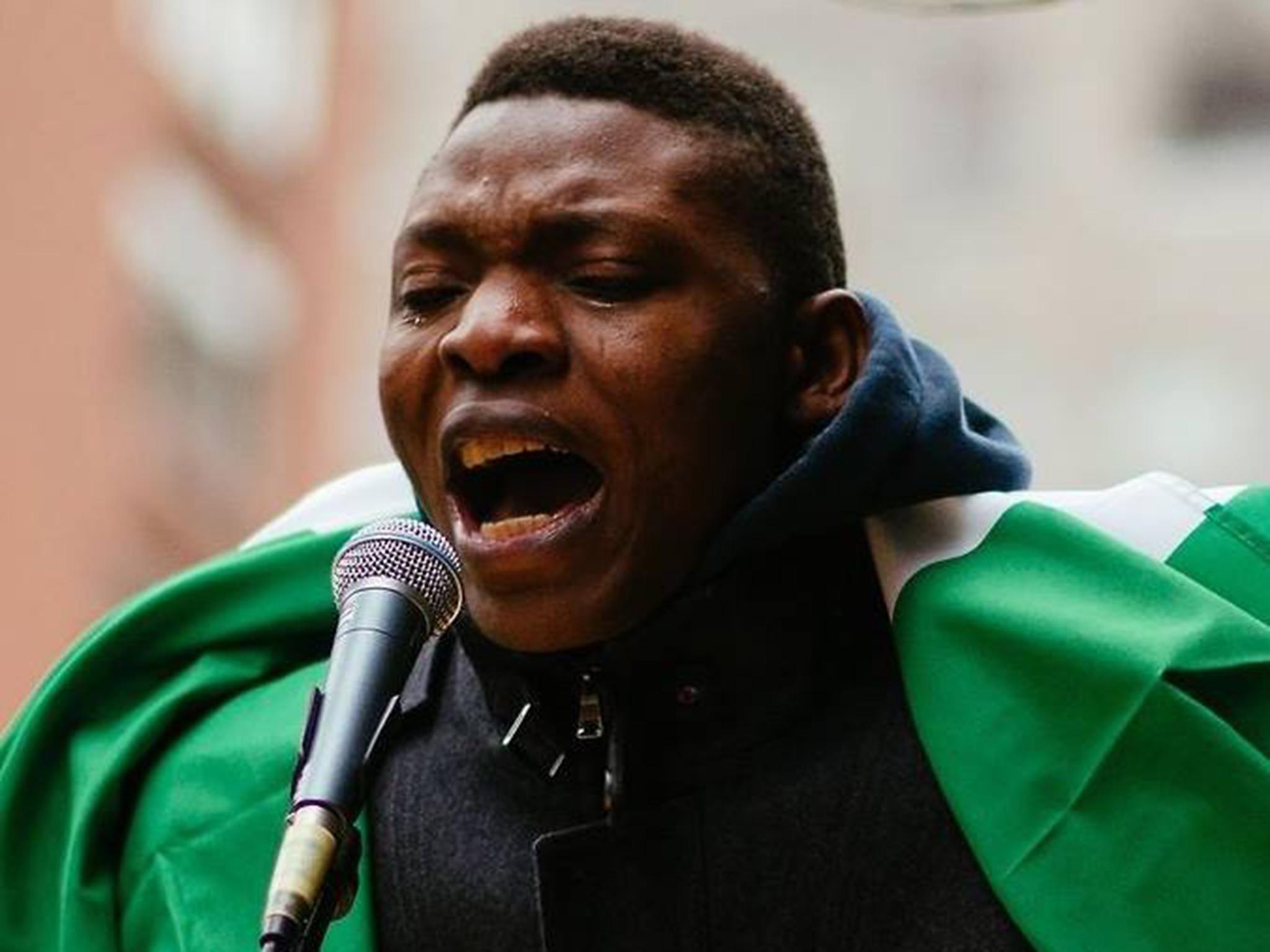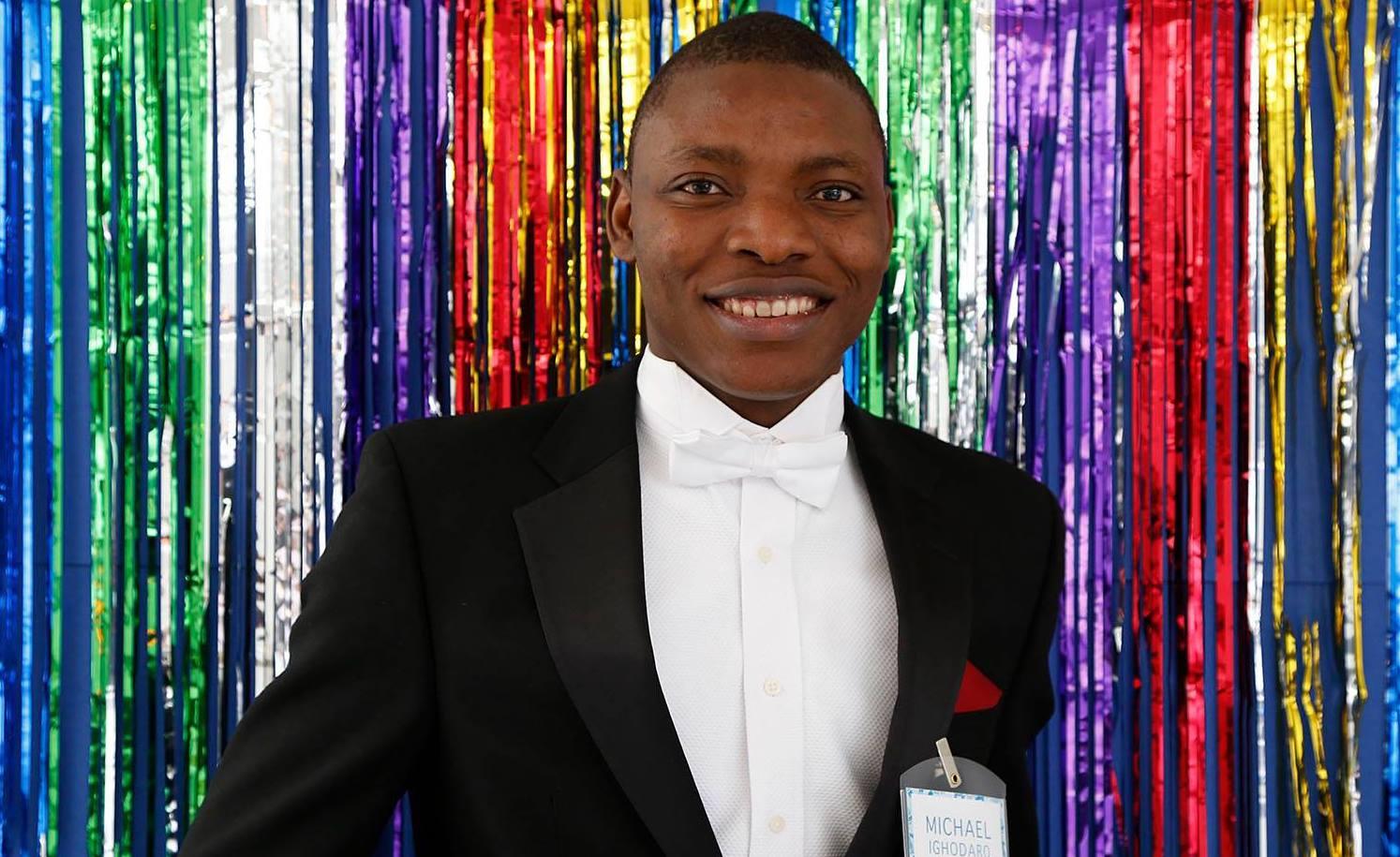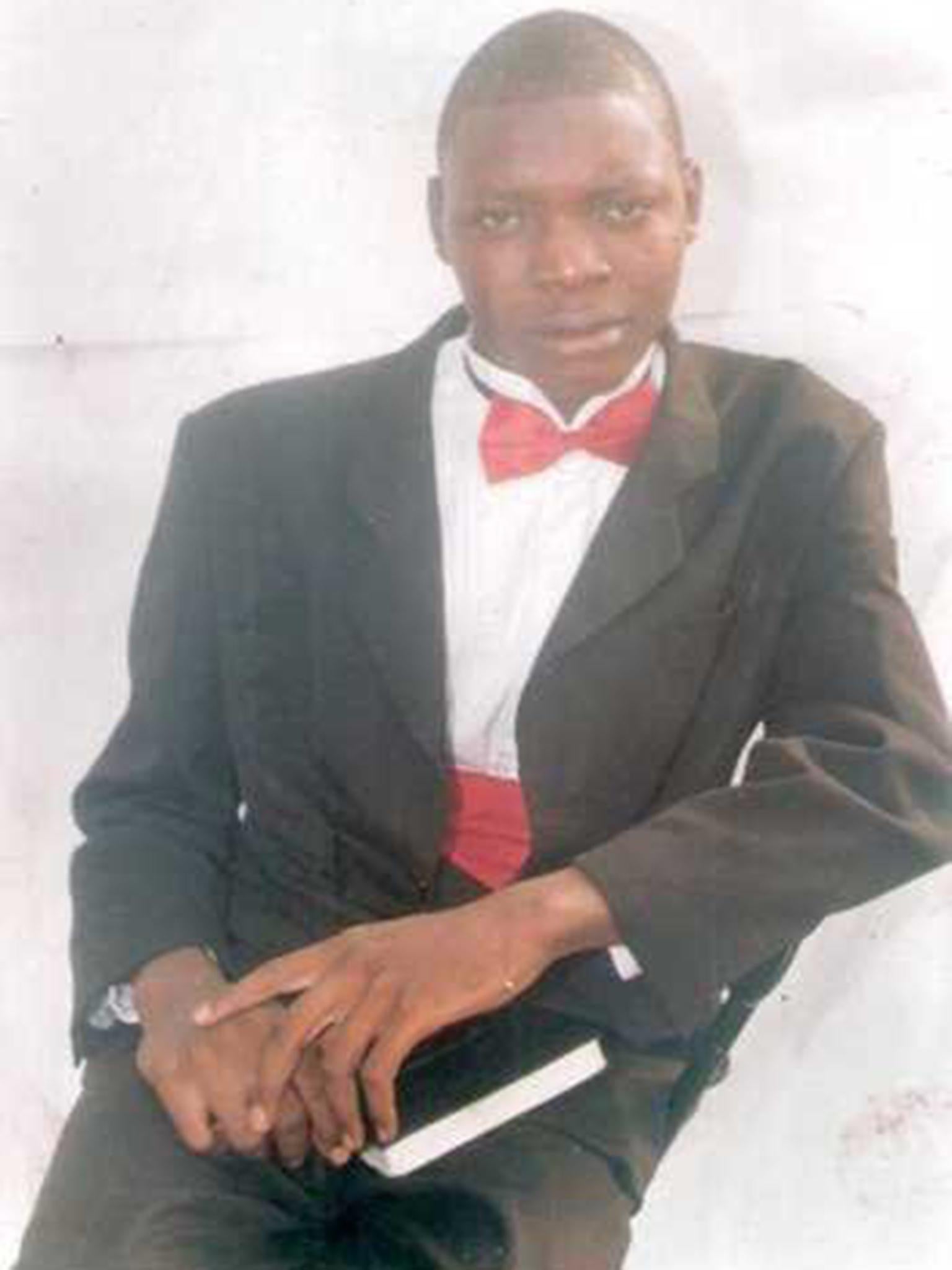Gay in Nigeria: The stark reality for LGBT people in the West African country
Activist Michael Ighodaro speaks about being violently attacked in his home city, seeking asylum in the US, and the issues that LGBT people across the world

Your support helps us to tell the story
From reproductive rights to climate change to Big Tech, The Independent is on the ground when the story is developing. Whether it's investigating the financials of Elon Musk's pro-Trump PAC or producing our latest documentary, 'The A Word', which shines a light on the American women fighting for reproductive rights, we know how important it is to parse out the facts from the messaging.
At such a critical moment in US history, we need reporters on the ground. Your donation allows us to keep sending journalists to speak to both sides of the story.
The Independent is trusted by Americans across the entire political spectrum. And unlike many other quality news outlets, we choose not to lock Americans out of our reporting and analysis with paywalls. We believe quality journalism should be available to everyone, paid for by those who can afford it.
Your support makes all the difference.Michael Ighodaro was attacked by homophobes in his home city of Abuja when he was waiting for a taxi outside his friend's home. His attackers stormed up behind the LGBT activist, hurled abuse at him, and broke his hands and ribs. His taxi driver discovered his battered body outside the housing complex.
"I couldn't go to the hospital to get treatment or to the police to report what had happened because I didn’t feel comfortable telling them I was beaten because I’m gay. So I had to visit the nurse in my office," Ighodaro, who worked for an HIV/AIDs advocacy group in the Nigerian city, tells The Independent. Ighodaro was forced to flee Nigera, and seek asylum in the US.
A hangover from colonial rule, anti-gay laws in Nigeria can lead to punishments including 14 years in prison to death by stoning. Gay people are also banned from holding meetings or forming clubs. Ighodaro, who is an Assisant Professor in Global LGBTI Studies at The new School University in New York, is among activists fighting for laws and attitudes affected LGBT people in countries across the world to be changed. In 2015, he was named a White House Honoree and a World Refugee Champion of Change for his work with the New York-based Aids Vaccine Advocacy Coaltion (AVAC) and the Housing Works organisation which helps people coping with HIV/Aids and homelessness. He more recently became a board member for Outright International, which fights for LGBT rights worldwide.
The 30-year-old spoke to The Independent about how he learned as a child that being gay is seen as "wrong", and the work to help LGBT people that still needs to be done.

You were kicked out of your family home when you were 17. What happened?
It go to the point where my dad couldn't accept me anymore. My parents were questioning the friends I was keeping and where I was going. One night, I went out with my friends and came back late. I was feeling a bit confident. That was the first time I had met other people like me. I wasn't scared of what my family would think. When I came back home my dad said 'that’s it we can’t have someone who's gay in the house.’ So they asked me to leave. My dad banned the family from speaking to me. No one spoke to me for 12 years.
When was the last time you spoke to your parents?
A lot has changed since then. Now I’m 30 and about two years ago I lost my dad. Before he died we made amends and he called me out of the blue to say sorry. He said he had to have heart surgery. It didn't go so well. We lost him in the process.
Did you ever come out to your parents in the conventional sense?
I think the majority of the time they assumed I was gay, but they knew for sure the day I left home. I wouldn’t have chosen to come out that way. I was angry and young and I was 17.
Did your friends who also identify as LGBT in Nigeria have the same experience as you?
Yes. I grew up with a lot of friends at school who had similar experiences. I had a few friends who also dropped out of school because their parents found out they are gay or lesbian so we became close friends. That was how I started doing LGBT activism. I was one of the eldest in my group, some were 14 or 15-years-old. But we stood with each other. We would sleep under a bridge or on the buses or at a friends' houses. It was important to be there for each other.
Did any LGBT people you grew up with have parents who accepted them when they came out?
No. Most people don’t come out at all. They stay in and grow up and get married and have a family and they hide who they are.
When did you realise that being gay was something that you had to hide?
The first time I heard about homosexuality was in the second or third grade at school. We were preparing for our graduation ceremony before high school and I told my teacher that I wanted to be with the girls during the performance. And he said ‘yes Michael you do that a lot lately, you have that homosexual tendency.’ I didn’t know what that, so I asked my mum. I said ‘my teacher thinks I’m homosexual’. She got really angry but it was what she was already thinking. She didn't let me go to my graduation.
That made me realise that what I was saying wasn’t OK. So I tried for a while to change. I even tried to have girlfriends but that didn’t work, so I got back to my usual self.
You moved to New York because you were the victim of a homophobic attack. What happened?
Two years after I left home I thought maybe I shouldn’t have left and I should have stayed and at least finished high school. A lot of my friends also left home and their parents stopped paying for their school fees. So we got in touch with an organisation called Alliance Right in Abuja that helps people get high school qualifications. I went to them for paid education and to learn about HIV. It was completely new information to me. Growing up, I never learned about HIV and how you could get infected. I got engaged with this and became a staff member with Global Advocate for HIV Prevention (AVAC). During the AIDS conference in 2012 in Washington, DC, I spoke about working with HIV in Nigeria.
I came across a Washington Post journalist at the conference. We talked and took photos at a gay bar. The day after, an article came out in Nigeria about the conference. I thought it would be OK and would only be seen in the US and that no one would see it in Nigeria. How stupid I was. It was all over the Nigerian newspapers, saying that I was celebrating being gay in the US. It said nothing about my work but just focused on me as a individual and going to a gay bar and taking pictures. I was advised against going back to Nigeria. But I love my work and I love my country so I went back home.
When I returned my boss who has been attacked several times and asked me to move to a hotel. I had to change my phone number. But I couldn’t stay in a hotel forever. I went to my friend’s apartment, and I was waiting for my taxi on the street. Someone called my name and I turned around and that was the last thing I remember. I was hit on my head and beaten. I was called a homosexual. My house and my property were burned. My hand and ribs were broken. My taxi driver found me. But I couldn't go to the hospital to get treatment or the police to report what had happened because I didn’t feel comfortable telling them I was beaten because I’m gay. So I had to visit the nurse in my office.
I had to move back to New York. It was a very difficult time for me.
How did you get asylum to the US?
Five days after my attack I moved to the US, and was helping by an organisation called Housing Works. I had to go to get out of Nigeria for my own safety. I had nothing but a single bag - and a broken hand. After a few months I applied for asylum. Sometimes it can take a year for the process to go through, but mine took four months.
Were you scared at all when Donald Trump was elected because of his associations with US politicians who don't support gay rights?
When I moved to the US I never stopped caring about Nigeria. I’m still very much a part of organising for LGBT rights in Africa and questioning governments. Coming to the US gave me the opportunity to advocate in a safe environment.
But in Nigeria I was attacked because I’m gay, here I’m scared because I’m black. I never thought I was black until I moved to the US. My skin colour never occurred to me. It was a cultural shock that being gay wasn’t the issue anymore.
I’ve never cared about elections before. In Nigeria I never voted because it doesn't matter if you vote or don't vote. Whoever will win will win. Here, I campaigned and fundraised because I knew the election was about more than people in the US. It meant a lot for people around the world. The result was heartbreaking for me. I’m still trying to recover from the shock. I feel like I personally lost something.

What issues are facing LGBT people in Nigeria and the US at the moment?
Being punished with 14 years in prison is a big issue but also the continuous attack on LGBT people. About the 50 gay men were arrested at a birthday party recently but those things happen often in Nigeria. It’s not just about changing a law but about changing mind sets. We need to show that LGBT people are just like every other human in the street.
The second issue is the poverty of LGBT people that we don't talk about so much. A lot of us are made to leave school and can't get jobs. People are living in very hostile environments that aren't fit for humans. We talk about HIV and laws, which is great, but these issues are killing gay people more than the law. They can't even afford to eat and that is a real issue.
In the US, there is a real issue with race among the LGBT community that we need to address. The mainstream LGBT community in the US is so white, but there are gay and trans people of colour who are also part of this movement that we need to bring to the frontline. We need to sort out issues affecting gay black men. They have double stigma for being black and gay.
Join our commenting forum
Join thought-provoking conversations, follow other Independent readers and see their replies
Comments